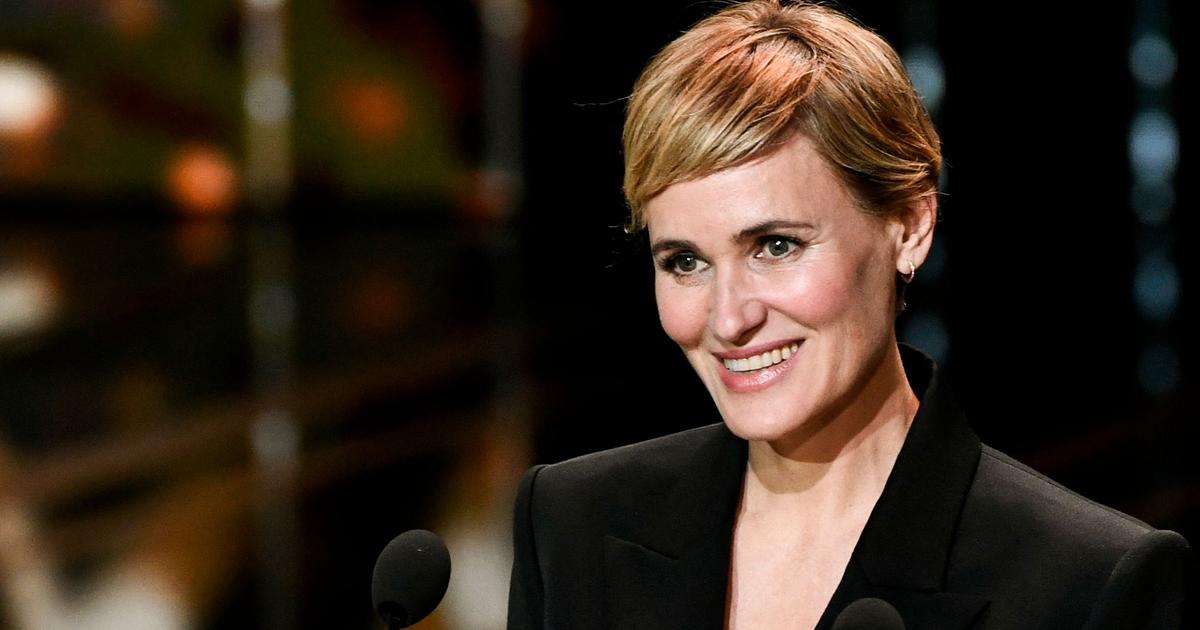A reading about the 1972 Olympics: the listener tells her very own story at the book signing
Created: 08/09/2022, 16:12
Ilse Kröll (l.) from Gautingen took part in the opening ceremony of the Olympic Games in Munich as a young girl.
Author Markus Brauckmann (right) signs his book for her.
© Hans Kurzl
The journalist Markus Brauckmann made the 1972 Olympic Games in Munich the subject of a book.
He presented his work at a reading in the beer garden of the Germering brewery.
Among the visitors were some who were there in person 50 years ago.
Germering
– "The trigger, the turn, she did it, she did it." 80,000 people in the stadium and the TV reporter was over the moon when Ulrike Meyfarth became the youngest individual Olympic champion in athletics in the high jump.
Markus Brauckmann appreciates the performance, but also sees what stormed the athlete afterwards.
“The schoolgirl Ulrike suddenly ended up as an Olympic champion.
Just like Boris Becker 13 years later when he won Wimbledon.”
Memories alive for the guests
During the reading in the inner courtyard of the brewery, Brauckmann managed to captivate all of the numerous visitors and take them on a lively journey back to 1972.
Of course, it was helpful that most of the listeners were aware of the Munich games.
Ilse Kröll from Gauting, for example, has very personal memories of 1972. She was a student at the English Misses in Munich-Nymphenburg at the time and experienced the Olympic opening ceremony up close – as an actor.
Around 3,500 students were selected to perform a dance at the celebration.
"I was there and I was really excited," she says on the fringes of the reading.
She found it particularly exciting to have been assigned to a front row.
"I could watch the athletes marching in." But you had to be sporty to even get selected.
"Then everyone suddenly wanted to go to physical education class." Now, 50 years later, it's nice to be able to revive memories in such a pleasant atmosphere.
Women's football banned until just before the Olympics
Brauckmann absorbs such moods, so he reads less directly from his book and instead tells stories that show the political and social conditions of the time.
This includes the fact that the German Football Association only lifted the ban on women's football in October 1970, the excitement caused by the first pant suit worn by a female member of the Bundestag and the role that the magazine "Bravo" played for the young people.
Reporting on a new level
At the 1972 Olympics, the then three-year-old Brauckmann only remembers that his parents took the night train to Munich for a day of athletics.
Nevertheless, he and his co-car Gregor Schöllgen deliberately wrote this book for the 1972 generation "who grew up in those years or later".
also read
Give more space to nature on the banks of the stream
International tasting at Gut Graßlfing: In search of the best beer
Brauckmann is a sports journalist and has also researched for a TV documentary about Niki Lauda.
According to Brauckmann, he came up with the idea for the book through a work about the 1936 Olympics in Berlin.
The connection between 1936 and 1972 is therefore repeatedly discussed.
Be it to show how much they wanted to present themselves in 1972 as a cosmopolitan, relaxed Germany.
Or how reporting was raised to a new level in 1936 and 1972.
“Back then, Riefenstahl married sport with emotions,” says Brauckmann – without making any political judgement.
Close-up, cameras that follow 100-meter sprinters their entire way have been standard ever since.
In 1972 Robert Lembke ("What am I?") was responsible for the radio and television broadcasts of the Munich Games.
He arranged the transmission times of important decisions or even the opening so that they could be followed in any time zone at reasonably reasonable times.
"Olympia was in line with the market," comments Brauckmann.
During the reading, the author touches on the attack on the Israeli Olympic team – with a reference to the loose controls in the Olympic village.
But they were accepted in order to correspond to the image of the cheerful games.
In the book, however, the attack, negotiations and the events at the air base in Fürstenfeldbruck are described in detail.
Place of reading deliberately chosen
Organizer Katrin Schmidt was very satisfied with the reading.
According to the owner of the bookstore Bookmarks, the decision to use the courtyard of the brewery was a conscious decision: "Just because of the heat." In addition, there was not enough space for visitors in the bookstore.
In the brewery, the combination of exciting reading material and good beer was a good fit.
Hans Kurzl


/cloudfront-eu-central-1.images.arcpublishing.com/prisa/UHMIEJMUHZB55LJW4T53HA7YIQ.jpg)


/cloudfront-eu-central-1.images.arcpublishing.com/prisa/54VGS3QRFBG7BIEKKLPXSABI7E.jpg)


/cloudfront-eu-central-1.images.arcpublishing.com/prisa/G2P4LZSOWRHMHJ3HNXVEIKVORY.jpg)
